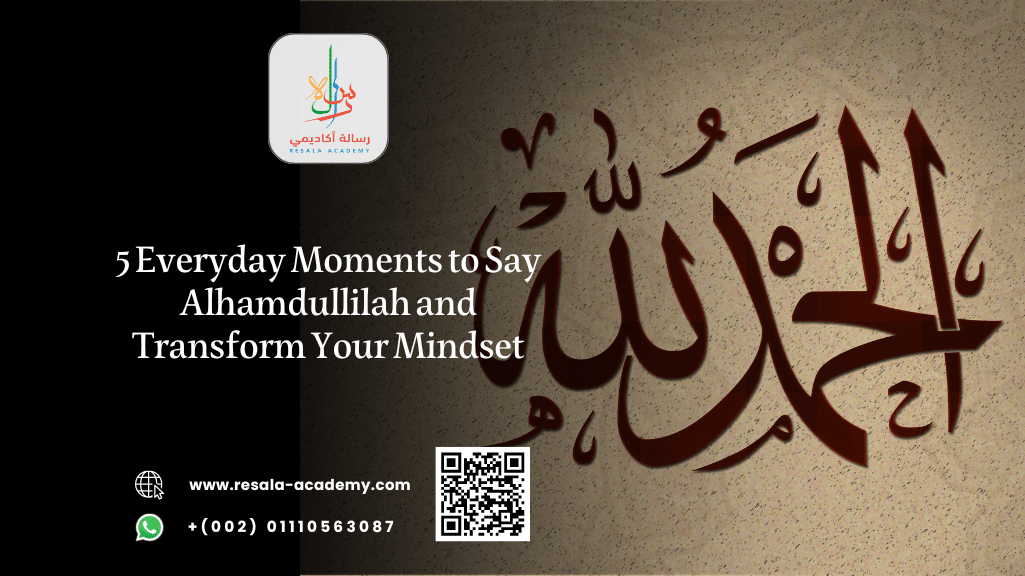The Best Way to Learn Arabic: 5 Tried and Tested Techniques for Success
Learning Arabic can open up a world of opportunities. With over 300 million native speakers, Arabic is one of the most widely spoken languages in the world. Whether you’re interested in traveling, working abroad, or simply expanding your cultural horizons, mastering Arabic can be an invaluable skill.
But with so many different approaches and resources available, what is the best way to learn Arabic? In this blog post, we will explore five tried and tested techniques that will set you on the path to success. From immersing yourself in the language and culture to utilizing online resources and apps, finding a tutor or joining a language course, practicing with native speakers, and maintaining consistency and persistence in your learning journey – we’ve got you covered.
So if you’re ready to embark on an exciting linguistic adventure and unlock the beauty of the Arabic language and culture, read on! We’ll guide you through each technique step by step, highlight common challenges along the way, introduce Resala Academy’s online Arabic course as a comprehensive solution for learners like yourself. Let’s dive into this journey together!
Benefits of Learning Arabic
– Global Communication: Arabic is spoken in over 20 countries, making it a vital language for international communication and business opportunities.
– Cultural Understanding: Learning Arabic allows you to delve into the rich history, literature, and traditions of the Arab world, fostering cross-cultural understanding.
– Career Advancement: As businesses expand globally, employers value individuals who can speak Arabic fluently. This skill opens doors to diverse job prospects.
– Travel Opportunities: Exploring Arab countries becomes more immersive when you can communicate with locals in their native language. It enhances your travel experiences.
– Access to Media and Literature: By learning Arabic, you gain access to a vast array of captivating books, and news sources that are not easily accessible through translations.
Learning Arabic offers countless benefits that extend beyond mere language acquisition. Whether it’s personal growth or professional development you’re seeking, the rewards of mastering this complex yet fascinating language are limitless. So why wait? Start your journey towards fluency today!
Traditional vs. Modern Approaches to Learning Arabic
When it comes to learning Arabic, there are both traditional and modern approaches available. Let’s take a closer look at the differences between these two methods.
Traditionally, learning Arabic involves attending physical classes or hiring private tutors for one-on-one lessons. This approach focused heavily on textbook-based learning, memorization of vocabulary and grammar rules, and repetitive exercises. While this method can be effective for some learners who thrive in structured environments, others may find it monotonous and less engaging.
On the other hand, modern approaches to learning Arabic embrace technology and cater to different learning styles. Online resources and apps provide interactive tools such as flashcards, quizzes, audio recordings, videos, and cultural insights that make language acquisition more immersive and enjoyable.
Additionally, modern methods emphasize real-life communication skills by encouraging students to engage with native speakers through language exchange platforms or social media groups. This exposure helps learners develop their listening comprehension skills while gaining cultural understanding.
By incorporating various multimedia elements into their teaching materials, modern approaches also promote visual and auditory stimuli that enhance memory retention of vocabulary and grammar concepts.
Whether you choose a traditional or modern approach depends on your personal preferences and learning style. Some individuals may benefit from the structure of a classroom setting or personalized guidance from an instructor using tried-and-true teaching methodologies. Meanwhile, others might prefer the flexibility offered by online resources along with interactive features that provide instant feedback.
In conclusion, different people respond differently to various instructional techniques when it comes to acquiring new languages like Arabic.
The Best Way to Learn Arabic: 5 Proven Techniques
A. Immersion in the Language and Culture:
One of the most effective ways to learn Arabic is through immersion in the language and culture. By surrounding yourself with native speakers, you can absorb their speech patterns, vocabulary, and cultural nuances. Consider living or traveling to an Arabic-speaking country, where you’ll have plenty of opportunities to practice conversational skills with locals.
B. Using Online Resources and Apps:
In today’s digital age, there are countless online resources and apps available for learning Arabic. These platforms offer interactive lessons, flashcards, audio recordings, Norani Qaida, and even language exchange options with native speakers worldwide. Take advantage of these resources to supplement your studies and practice regularly.
C. Finding a Tutor or Joining a Language Course:
Working with a tutor or joining a language course can provide structure and guidance in your Arabic learning journey. A skilled instructor will tailor lessons to your level of proficiency and help you overcome specific challenges. Additionally, interacting with other learners creates a supportive environment for practicing conversations.
D. Practicing with Native Speakers:
Engaging in conversation with native speakers is invaluable when learning any language – including Arabic! Seek out opportunities to converse regularly either face-to-face or through virtual platforms like Skype or language exchange websites.
E. Consistency and Persistence in Learning:
Consistency is key when it comes to mastering Arabic (or any language). Set aside dedicated time each day or week for studying vocabulary, grammar rules, reading texts aloud – whatever fits your learning style best! Stay persistent even if things get challenging; progress takes time!
Everyone learns differently, so feel free to combine these techniques based on what works best for you! With dedication and persistence using these proven techniques as part of your study routine will bring great success on your journey towards becoming fluent in Arabic!
Common Challenges Faced When Learning Arabic
Learning any language can be a rewarding but challenging endeavor, and Arabic is no exception. As you embark on your journey to learn this beautiful language, it’s important to be aware of the common challenges that learners often encounter.
One of the main difficulties faced when learning Arabic is its complex script. The Arabic alphabet may seem daunting at first with its unfamiliar letters and different forms depending on their position within a word. However, with practice and dedication, you can gradually become comfortable with reading and writing in Arabic.
Another challenge lies in mastering the pronunciation of certain sounds unique to the Arabic language. Some sounds may not exist in other languages you are familiar with, making them difficult to reproduce accurately. However, by listening attentively to native speakers and practicing regularly, you can overcome these hurdles.
Arabic grammar can also pose challenges for learners. Unlike English or many other European languages, Arabic has a highly structured grammatical system involving intricate rules for verb conjugation, noun declension, and sentence structure. It requires patience and perseverance to grasp these concepts fully.
Additionally, vocabulary acquisition can be overwhelming due to the vast number of words in Arabic. Building a strong vocabulary takes time and effort as there are multiple synonyms for many words along with various dialectal differences.
Lastly comes the issue of finding opportunities for regular practice with native speakers outside formal education settings or Arab-speaking countries themselves.
While these challenges may initially seem intimidating, they should not discourage you from learning Arabic! With determination and effective strategies tailored to your needs as a learner (such as those discussed earlier), overcoming these obstacles becomes achievable.
Resala Academy Offers Arabic Course Online
Resala Academy is a reputable institution that offers Arabic courses online, providing students with a convenient and effective way to learn the language. With their expert instructors and comprehensive curriculum, they have established themselves as a trusted source for Arabic education.
One of the key advantages of taking an Arabic course online at Resala Academy is the flexibility it offers. Students can access the lessons from anywhere in the world and study at their own pace. This makes it ideal for those with busy schedules or who may not have access to physical classrooms.
The courses at Resala Academy are designed to cater to learners of all levels – from beginners to advanced speakers. Whether you are just starting or looking to enhance your existing skills, there is a course tailored specifically for you.
The academy’s experienced instructors use interactive teaching methods that engage students and promote active learning. They incorporate multimedia resources, such as videos and audio recordings, which help improve listening comprehension and pronunciation.
Furthermore, Resala Academy provides ongoing support throughout the learning journey. Students have access to personalized feedback from instructors, allowing them to track their progress and address any areas needing improvement.
In addition to these benefits, enrolling in an Arabic course at Resala Academy also exposes learners to authentic cultural content. By incorporating lessons on Arab customs, traditions, and literature into the curriculum, students gain a deeper understanding of the language within its cultural context.
Resala Academy offers top-quality Arabic courses online that enable individuals worldwide to learn this beautiful language effectively. So whether you’re a beginner or seeking further proficiency in Arabic-speaking skills, consider exploring what Resala Academy has in store for you!
FAQs
Q: How long does it take to learn Arabic?
A: The time it takes to learn Arabic varies depending on factors such as your prior language learning experience, the amount of time you dedicate to studying, and your immersion in the language. On average, it can take around 2-3 years to become proficient in spoken and written Arabic.
Q: Is learning Arabic difficult?
A: Learning any new language has its challenges, but with dedication and consistent practice, anyone can learn Arabic. It may seem intimidating at first due to its unique script and grammar rules, but don’t let that discourage you. With the right resources and techniques, you’ll be able to overcome these hurdles.
Q: Can I learn Arabic online?
A: Absolutely! Online platforms like Resala Academy offer comprehensive Arabic courses taught by experienced native-speaking instructors. These courses provide interactive lessons, practice exercises, and opportunities for real-time conversation with fellow learners.
Q: Do I need a tutor or can I learn on my own?
A: While self-study is possible through online resources and apps, having a tutor or joining a language course can greatly enhance your learning experience. A tutor or instructor provides personalized guidance, clarifies doubts promptly, and keeps you motivated throughout your language journey.
Conclusion
Learning Arabic can be a challenging yet rewarding endeavor. With its rich history, cultural significance, and global reach, mastering the Arabic language opens up a world of opportunities for personal growth, professional advancement, and intercultural understanding.
Throughout this article, we have explored the benefits of learning Arabic as well as the traditional versus modern approaches to language acquisition. We have also discussed five proven techniques that can help you on your journey to becoming proficient in Arabic: immersion in the language and culture, utilizing online resources and apps, finding a tutor or joining a language course, practicing with native speakers, and maintaining consistency and persistence in your learning efforts.
While there may be common challenges faced when learning Arabic – such as grasping complex grammar rules or memorizing unfamiliar vocabulary – these obstacles should not deter you from pursuing your goal. With dedication and commitment to regular practice, you can overcome these hurdles and make significant progress in your linguistic abilities.
If you are ready to embark on this exciting language-learning journey but are unsure where to start or how to structure your study plan effectively Resala Academy offers an excellent solution. Their comprehensive online Arabic courses cater to learners of all levels – from beginners seeking basic conversation skills to advanced students aiming for fluency. The expert instructors at Resala Academy provide personalized guidance through interactive lessons that focus on practical usage while also fostering cultural understanding.
By choosing Resala Academy’s online Arabic course program, you will benefit from their experienced teachers’ knowledge and expertise who understand the intricacies of teaching Arabic effectively. You’ll gain access to high-quality study materials designed specifically for efficient learning outcomes.
In conclusion, remember that embarking on the journey of learning any new language requires patience and perseverance. By incorporating tried-and-tested techniques like immersion experiences; utilizing digital tools; enrolling in courses or finding tutors; practicing with native speakers; and remaining consistent with your studies – success is within reach! So take that first step today and begin your Arabic language learning adventure. Soon enough, you’ll be communicating confidently in Arabic and opening up a world of endless opportunities.




